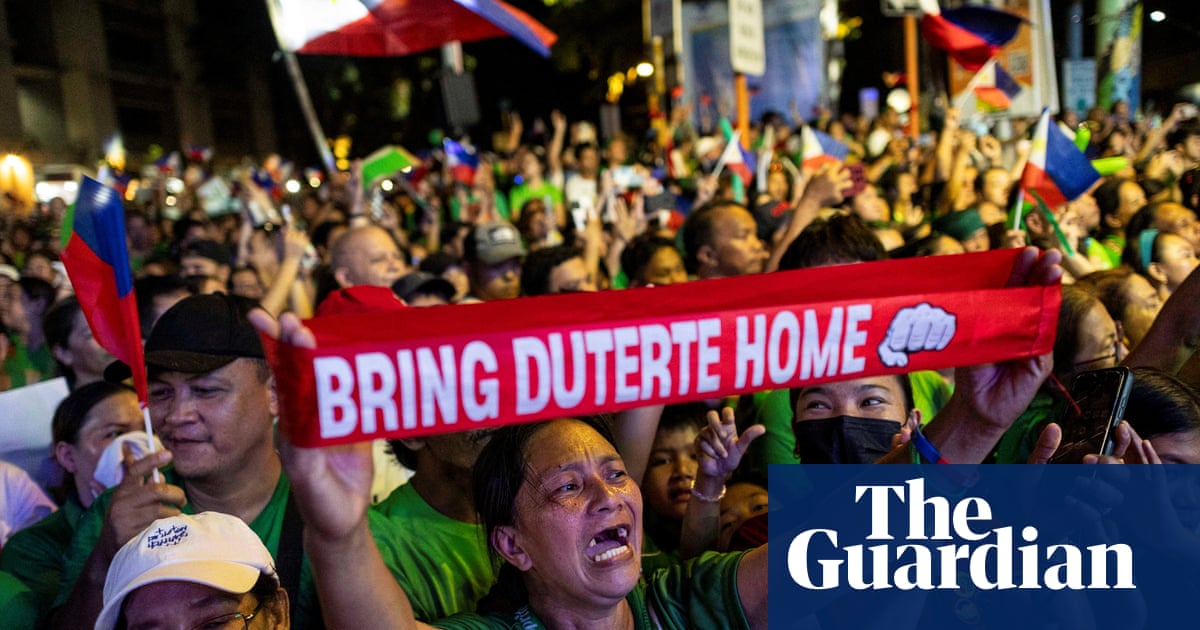Former Philippines presidentRodrigo Dutertehas been re-elected as mayor of the city of Davao, the family’s stronghold, despite being imprisoned thousands of miles away in The Hague for alleged crimes against humanity.
With more than 60% of returns in, Duterte, 80, had an insurmountable lead of 405,000 votes – far ahead of his nearest competitor who trailed on 49,000, according to unofficial results from the election commission published by local media.
Duterte wasarrested and flown to The Haguein March over his so-called “war on drugs”, in which thousands of people were killed, many of them young men in deprived urban areas who were shot dead in the streets.
Despite international outrage over the killings, Duterte, known for his tough-talking, everyman persona, remained popular throughout his presidency.
His arreststirred defiance and sympathyamong supporters in the run-up to Monday’s midterm elections, which have taken place amid a bitter power struggle between the Dutertes and their rivals, the family of president Ferdinand Marcos Jr.
On Duterte’s 80th birthday in March, tens of thousands gathered in the city, lighting candles and singing. Campaigns by his supporters have been dominated by calls for him to be returned to thePhilippines.
It is unclear how Duterte would take his oath to assume office as mayor. His daughter, impeached vice-president Sara Duterte, said this was being discussed by “his ICC [international criminal court] lawyers and his Filipino lawyers”.It is expected that, given the former president is imprisoned in the Netherlands, duties could instead be assumed by the vice-mayor – a race his son, Sebastian, was also on track to win.
Duterte’s children and grandchildren have accused the state of having “kidnapped” him. In a video message posted after his arrest, he said he would take responsibility for his policies.
Sara Duterte did not appear on the ballot papers on Monday, but the elections will prove crucial to her survival.
Thevice-president was impeached in Februaryover claims that she misused funds, and in relation to a speech she gave in which she appeared to threaten the lives of the president, the first lady and speaker of the house.
She is due to face trial in the senate, where half of the members were being elected on Monday.
If Sara Duterte were to be found guilty by the senate, she would be barred from office – preventing her from running as president in 2028.
She said last week that her name, and her her family’s name “have been dragged through the mud”, asking a rally of supporters: “Who will really benefit if the Duterte family is gone from this world? Not the Filipinos, not the victims of crime, the unemployed, the poor or even the hungry.”
